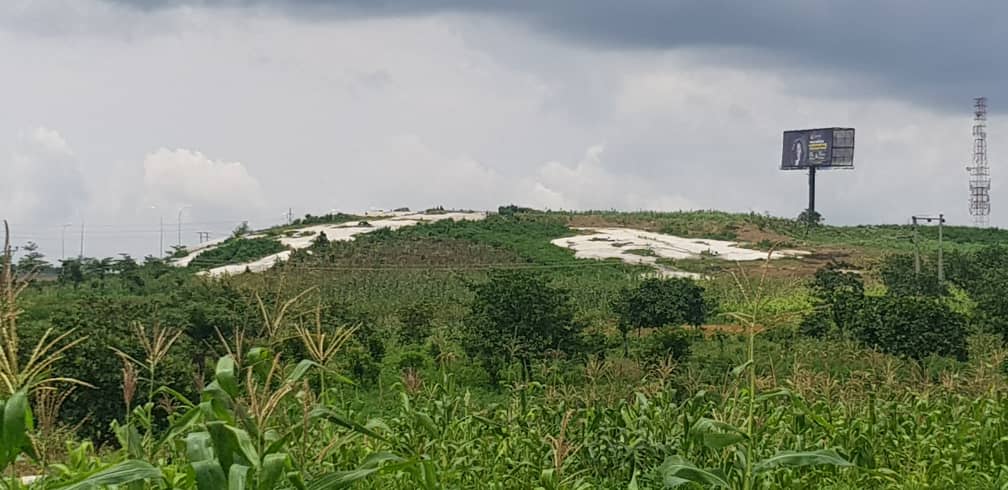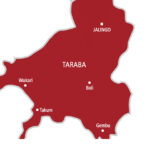Farmers in Taraba State have lost crops worth millions of naira following the abrupt cessation of rainfall for over two weeks across many local government areas of the state.
The ensuing aridity has affected growth of crops, which include maize, groundnut, rice, and melons, among others.
Areas badly affected are; Ardo-Kola, Gassol, Gashaka, Bali, Jalingo, Zing, Yorro, Lau, Ibbi and Wukari Local Government Areas of the state.
Findings revealed that there are areas that did not record rainfall for over seven weeks, resulting in the drying up of many crops.
- Experts outline steps as farmers begin cowpea planting
- Food poisoning, NAFDAC, and public health workers
A large-scale farmer, Yarima Isa Tafida, is top on the list of people in the state who have suffered serious loses in his farms located in Gassol, Bali and Ardo-Kola Local Government Areas.
He told Weekend Trust that he planted about 140 100kg bags of rice seeds in his Sheka farms in Gassol LGA.
According to him, two days after he planted the seeds, rain stopped for about 40 days.
Yarima Isa said the seeds did not germinate and he lost the entire investment running into millions of naira.
He said he covered the farm with an insurance, but the insurance was against flooding because the area is prone to flooding and he was not anticipating drought.
The farmer further stated that he also planted cassava in his farm at Iware in Ardo-Kola LGA, and that he suffered the same fate as soon after planting the cassava, no rain was recorded for about four weeks, adding that the cassava stalks dried up and he lost his investment in that farm too.
Yariman Isa also revealed that 30 per cent of the maize and rice crops dried up at his Pangri farm located in Bali LGA.
He said the farm is about 200 hectares and, unfortunately, he did not cover the farms at Iware and Pangri with any insurance policy because they are not in flood-prone areas.
In Tella area of Gassol LGA, a large-scale farmer, Adamu Garba, told Weekend Trust that he planted over 20 bags of rice seeds in his farm, but he has lost most of it because of lack of rainfall. According to him, he was expecting to harvest about 2,000 bags of paddy rice from the farm.
Garba said he is lucky that his farm is located close to the River Benue and the farm sustained some moisture.
He said he will replant rice because of the rainfall being recorded in the area now.
However, Haruna Sule, a small-scale farmer at Kwando area in Ardo-Kola was not that lucky because he lost his entire maize farm due to lack of rainfall.
Another farmer in Sandirde in Gassol LGA, Bala Dauda, said many farmers in the area lost their crops due to prolonged cessation of rainfall.
He said other areas where farmers suffered losses are; Sansani, Nanguru, Sabongida DanAnacha and Wuro -Jam.
He said those who have farms far away from the riverside suffered the most because their farms did not retain moisture and the prolonged absence of rainfall led to the withering of their crops.
Bala Dauda stated that it would be difficult to give an actual number of farmers affected.
“From all indications, the harvest of paddy rice and maize may likely drop this year because most of the farms were affected by the absence of rainfall and most of the crops have dried up”, he lamented.
The District Head of Jiddawo, Isa Ciroma, also said his area suffered lack of rainfall for a long period of time and as a result many farmers lost their crops. He, however, noted that the area has started getting rain now.
Garba Halilu in Mutum-Biyu area also told Weekend Trust that people who have farms far away from the river suffered the most.
A large-scale farmer, Alhaji Ali Maihula, in Bali LGA said he planted three 100kg bags of soybean seeds in his farm but the seeds he planted did not germinate due to lack of rainfall.
He said the farmers need government’s assistance because of the losses they encountered.
According to him, the farmers have lost their investments in their farms and have nowhere to fall back to.
He revealed that farmers in the area, including himself, did not cover their farms with any agricultural insurance policy.
He pointed out that many farmers in Taraba State do not have knowledge of the benefits of insurance on their farms, coupled with religious beliefs.
Another farmer, John David, said he took a loan of N5 million from the bank which he invested in his farm and that no less than 60 per cent of the farm has been destroyed.
He said he was at a crossroads as it would be difficult to have enough yields with which to pay back the loan and realise profit.
“We need government’s intervention to enable us to recover part of our investment and those of us that took bank loans to farm need to be assisted, too,” he said.
He said he was hoping to harvest about 100 bags of maize but his dream was shattered.
He said his farm, located at the foot of Kwando Mountain, has been a source of income for him annually, but that the case is different this year.
“My farms lost moisture due to lack of rainfall and the crop dried up. However, l will replant guinea corn and beans because of the rainfall we are getting now,” he said.
The story is the same in the seven LGAs of the state, where thousands of farms have been affected.
However, after weeks of prayers and fasting by both Muslims and Christians across the affected areas, rainfall is now being recorded in parts of the state.

 Join Daily Trust WhatsApp Community For Quick Access To News and Happenings Around You.
Join Daily Trust WhatsApp Community For Quick Access To News and Happenings Around You.


